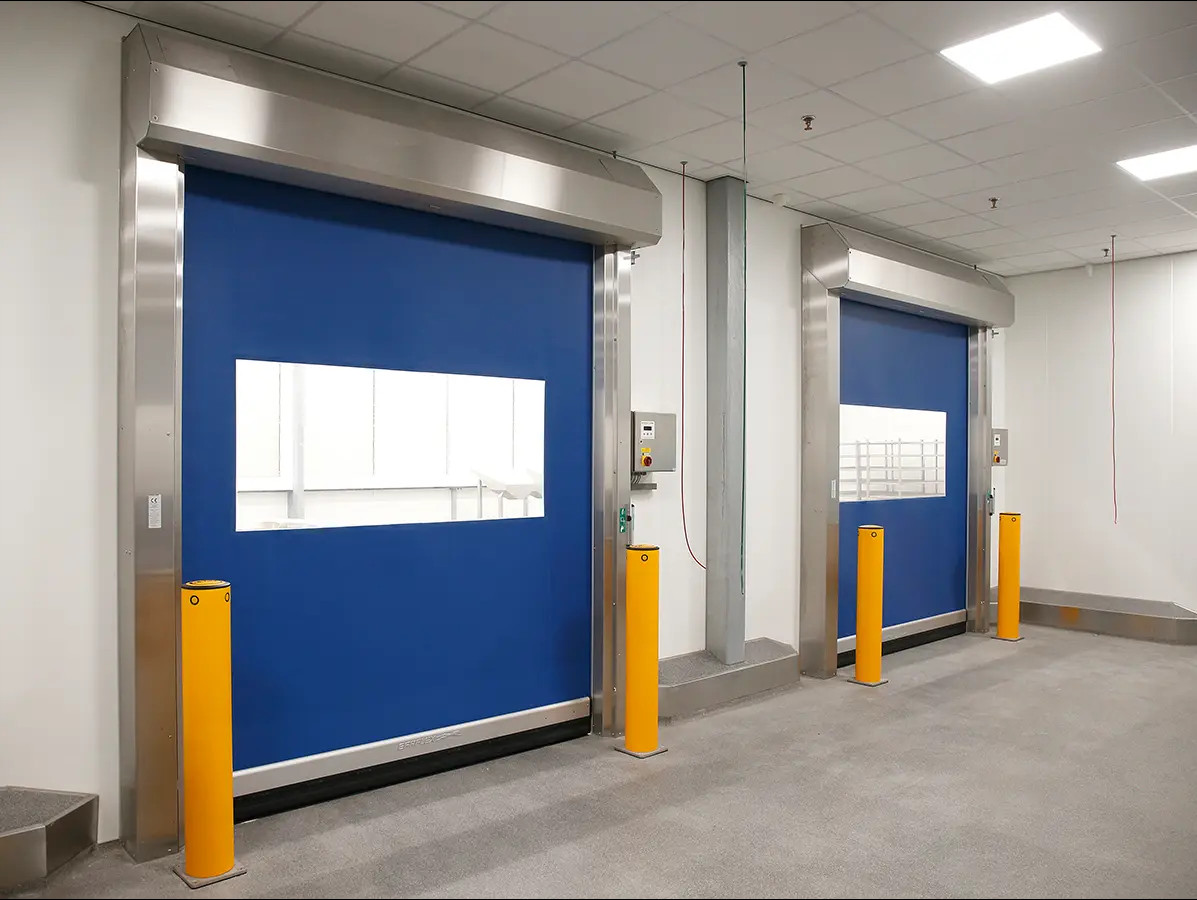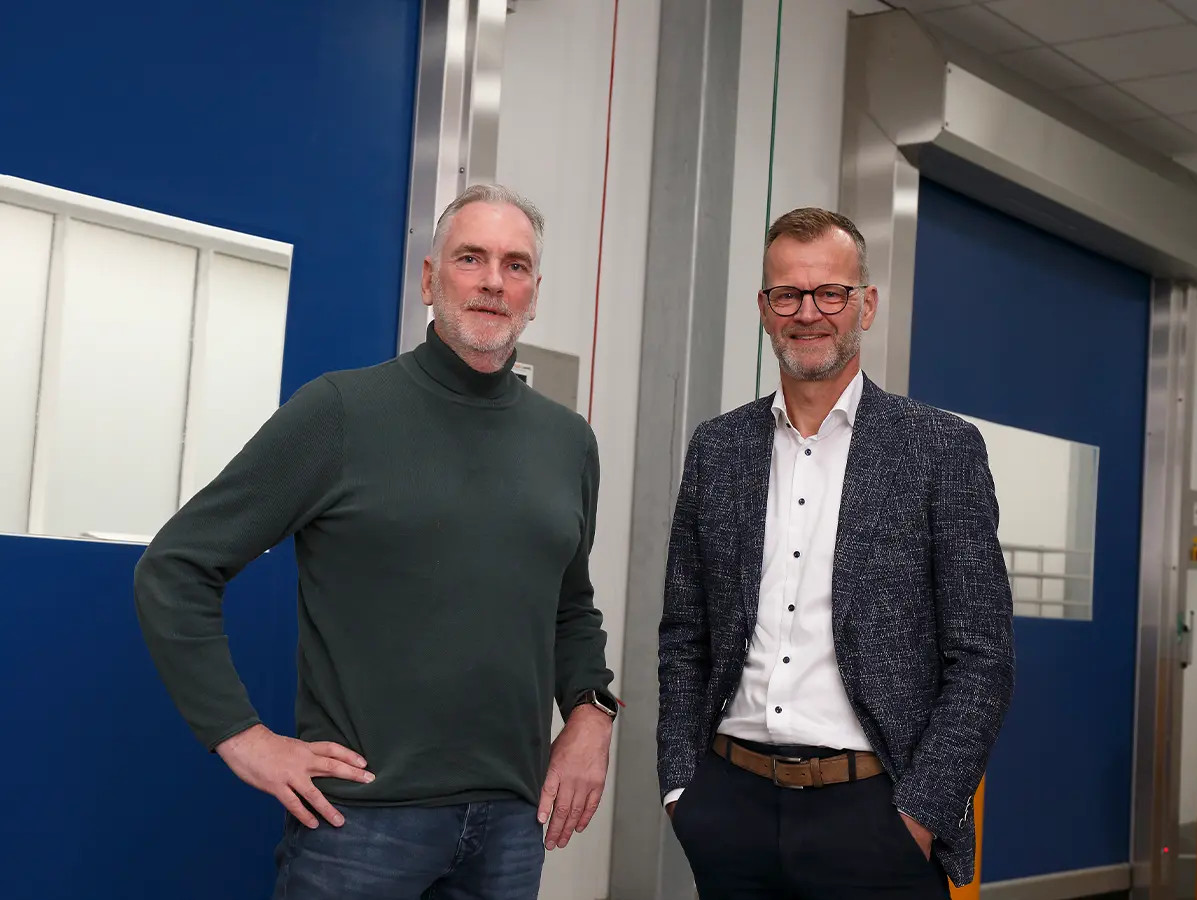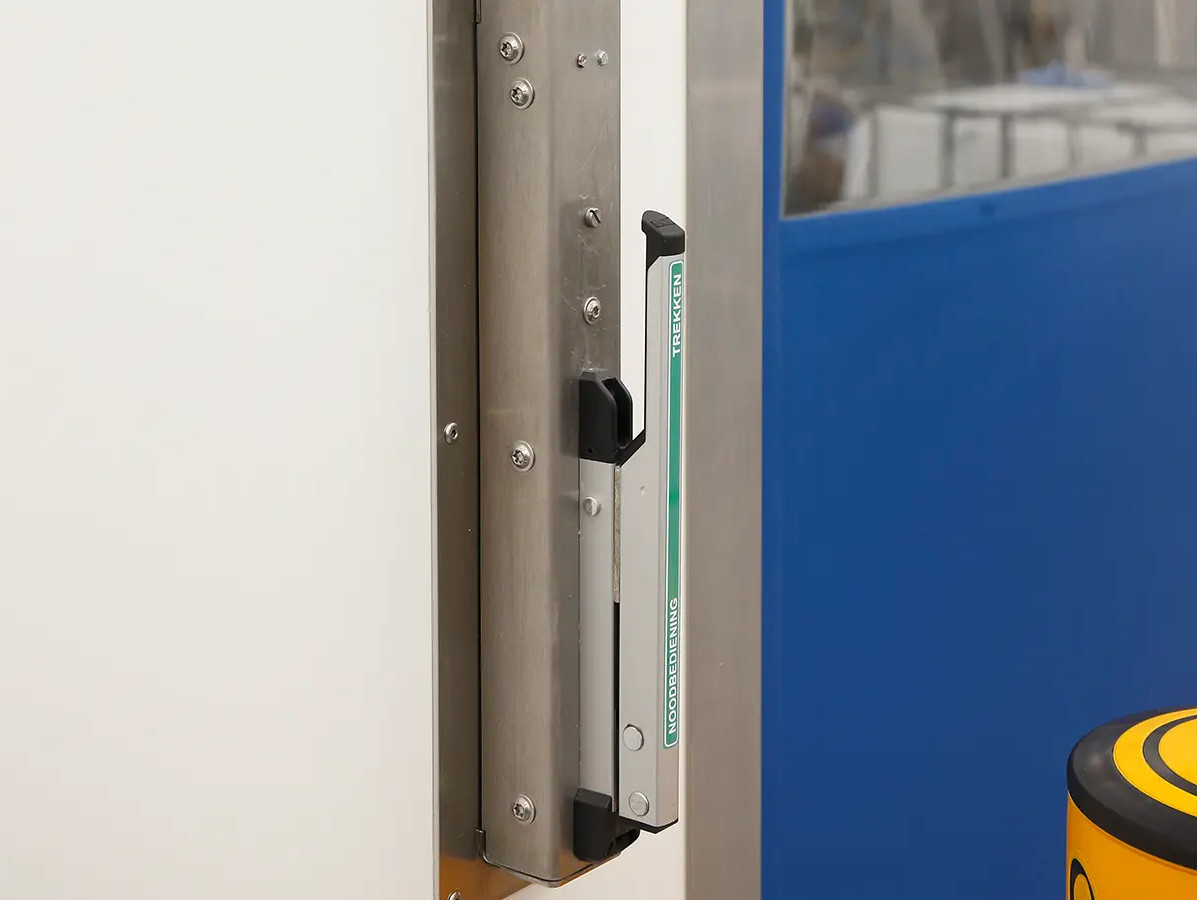
A hefty dose of perseverance has played a significant role in Elite's current success as a producer of salads, sauces, and snacks. Behind the historic factory in Neede, a new production facility has been built. One of its highlights: the newly installed high-speed doors.
Elite’s history begins with 700 fried rice balls made for a party at Twente Air Base in 1957. “My father knew the organizer, who asked him to provide a savory snack for the event. In the shed next to the family home, he and his girlfriend - later his wife and our mother - rolled 700 rice balls by hand, using his mother’s recipe,” says Harry Niemeijer. Since their father’s passing in 2000, he and his brother Robert have run Elite together.
The success of the rice balls marked the start of a thriving family business in Twente, founded by Harry Niemeijer Sr. The journey hasn’t always been smooth. It has involved relocations, periods of prosperity, significant growth, financial setbacks, a forced sale, and starting over from scratch. Thanks to perseverance (especially from founder Harry Niemeijer Sr.), a clear vision, and two dedicated owner-directors, Elite has grown into what it is today: a producer of salads, snacks, and sauces for the out-of-home market, both domestically and internationally. Elite is known as the creator of the popular Joppiesauce and Jamballasauce. Other bestsellers include bami slices, beef salad, and shawarma rolls. The original rice patties remain a favorite to this day.

Simon Oevering (left) with Paul Valster
Production takes place in an old textile factory in Neede, Achterhoek. This worked well for years, with occasional renovations and modernizations. “But we outgrew the space. Fortunately, we got permission to build a new facility behind the current factory,” says Harry. The interior designer organized a VR experience for him and his brother, allowing them to get a detailed preview of the new building. “It matched exactly what I had envisioned.”
When we visited the site in early October, the work was nearly complete. The machines were still covered in plastic, and the final welding was being done here and there. Simon Oevering, Elite’s technical manager, oversaw the construction and gave us a tour of the brand-new changing rooms, 250 lockers (in red, matching the logo), hygiene entrance, offices, cold storage rooms, and production areas, including a new breading line. The entire building covers 2,400 square meters, with an additional 800 square meters on the first floor. The expansion is fully gas-free and features several innovative elements. For instance, the clothing lockers are equipped with a ventilation system, the entire building has a sprinkler system, and extra fire-resistant partitions have been installed. Simon’s “must-haves” list included EFAFLEX high-speed doors. “We’ve had six of these since 2011, and we’ve been very satisfied with them. Why? The quality of the door leaf, the drive mechanism, the control system, and also the service and reliability from EFAFLEX are top-notch. We previously used other roll-up doors, but they didn’t meet our needs or expectations. So we know there are less reliable players in the market,” Simon explains. He first saw the doors at a trade fair. “I leaned against one and immediately knew: this is the quality we’re looking for.”

The new facility now features nine additional EFAFLEX high-speed doors. “One of the USPs of the SRT-L Premium doors we have here is their continuous door tension system. If there’s positive or negative pressure in a room, the door leaf can flex without lifting off the floor. This prevents unwanted airflows and keeps pests out. This type of door always seals perfectly to the ground,” says Paul Valster from EFAFLEX. He adds that the doors open at speeds of up to 2.5 meters per second and have a system that allows them to open partially, even if power is lost. Simon explains: “If the fire alarm goes off and employees need to evacuate, they won’t have to cut through the doors—especially frustrating if it turns out to be a false alarm.” He is also highly satisfied with EFAFLEX’s service: “They use their own technicians, which is rare these days and very reassuring. But we only see them once a year for preventive maintenance, because nothing ever goes wrong.”
Owner Harry also values such a reliable partner. He prefers long-term relationships with suppliers. Does he ever shop around? “Sure, but it’s like a marriage. It can go well for a long time, but if you’re not satisfied, you need to address it - or move on. Thankfully, that’s not the case here!”
Photos: © Hans Prinsen
Source: Vakblad Voedingsindustrie 2024